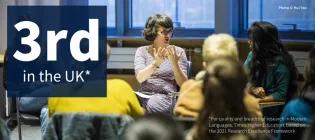Nicolás Guillén Landrián was one of only three Afro-Cuban directors active at the Cuban national film institute (ICAIC) in its first decade. Nephew of a revolutionary poet, and son on an attorney who advocated for Camagüey sugar workers, his 35mm film classics include the notoriously-censored Coffea arábiga (1968), which ironized the Havana greenbelt urban agricultural project, unearthing its racialized undertones. After leaving Cuba for the US, Guillén Landrián filmed his final and only audiovisual work in exile, Inside Downtown (2001), a portrait of artists and poets of his generation, including the cult Afro-Cuban poet, Esteban Luis Cárdenas.
In 2020, in conjunction with the Havana Glasgow and Africa in Motion film festivals, Dr Jessica Gordon-Burroughs and Dr Raquel Ribeiro screened these two works together with a 2013 film by Julio Ramos and Raydel Araoz featuring extensive interviews with Guillén Landrián’s widow, the painter Gretel Alfonso. The accompanying panel discussion, streamed live online, featured the researchers in conversation with Julio Ramos. The Memory in Progress project also created a video archive of testimonials from Cuban intellectuals, curators and artists on the meaning of Nicolás Guillén Landrián for the history of Cuban film and future generations of Cuban filmmakers. In 2021, Jessica Gordon-Burroughs was awarded Best Essay in Latin American Visual Culture Studies by the Latin American Studies Association for “The Pixelated Afterlife of Nicolás Guillén Landrián” which looks in particular at Inside Downtown.
Funded by the School of Literatures, Languages and Cultures (LLC) Impact Fund
LLC Team: Dr Jessica Gordon-Burroughs, Dr Raquel Ribeiro


